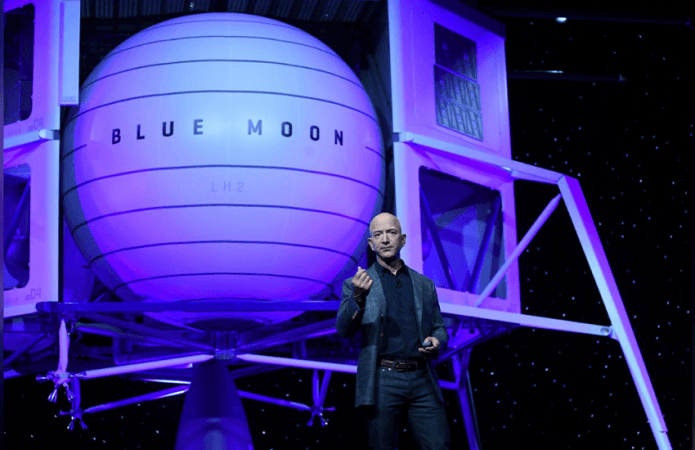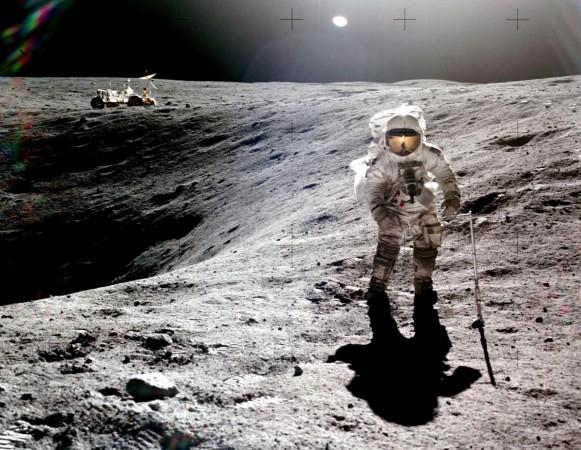The world's wealthiest man, Jeff Bezos wants to lead the next stage in the human exploration of space with his private company, Blue Origin. While Elon Musk has been busy making not-flamethrowers, Bezos revealed the first lunar lander from his company - Blue Moon.
"We've been working on this lander for 3 years. It's a very large lander. It'll soft land in a precise way 3.6 metric tons on to the lunar surface. The stretch tank variant of it will soft land 6.5 metric tons on to the lunar surface," said Bezos at a press conference in Washington today.
The lander is capable of carrying four rovers using a new rocket engine which was also revealed at the same conference. This enhances the possibilities of new ventures in space. A feature of the lander which was repeatedly emphasised is its smooth landing capability. Bezos claims this vehicle will allow rovers to land on the Moon smoothly, and relay information back to the Earth via an optical communications system.
Bezos spoke at length about the mechanisms of the vehicle. The deck has a simple interface to allow a variety of payloads. The lander has a customisable davit mechanism inspired by naval systems. With its star tracking system, the vehicle can autonomously navigate in space. The onboard radio has an x-band with a 10-megabit range.

Bezos went on to discuss his dream of the future. He believes in a future with space colonies and life on orbiting space stations. No launch dates, customers or plans for human travel were discussed during the conference, but it is being speculated that humans will one day be able to use space travel services from companies like Blue Origin, SpaceX and NASA.
Robert Walker, a private space consultant who works with Blue Origin, mentioned plans for a 2023 unmanned launch. In 2017, Blue Origin had revealed its plans of sending unmanned, reusable rockets capable of carrying 4,500 kilograms of payload to the Moon.

The pressure is building slowly on the space race once more. Added pressure comes from the US military for creation of military hardware, pitting major manufacturers like Boeing, Northrop Grumman and Lockheed Martin against each other to compete for price and innovation. This is getting enhanced with the development of private companies in the industry. Space companies have previously made claims and promises but rarely delivered on their goals. Last year, an Israeli private, non-profit company crashed a rocket while trying to land.
However, the people working on Blue Moon are optimistic about its development. Former NASA deputy administrator Dava Newman, who is also an MIT professor, has been working with Blue Origin as a customer. She said that this time is different. The new engine makes it possible that "it's for real."








